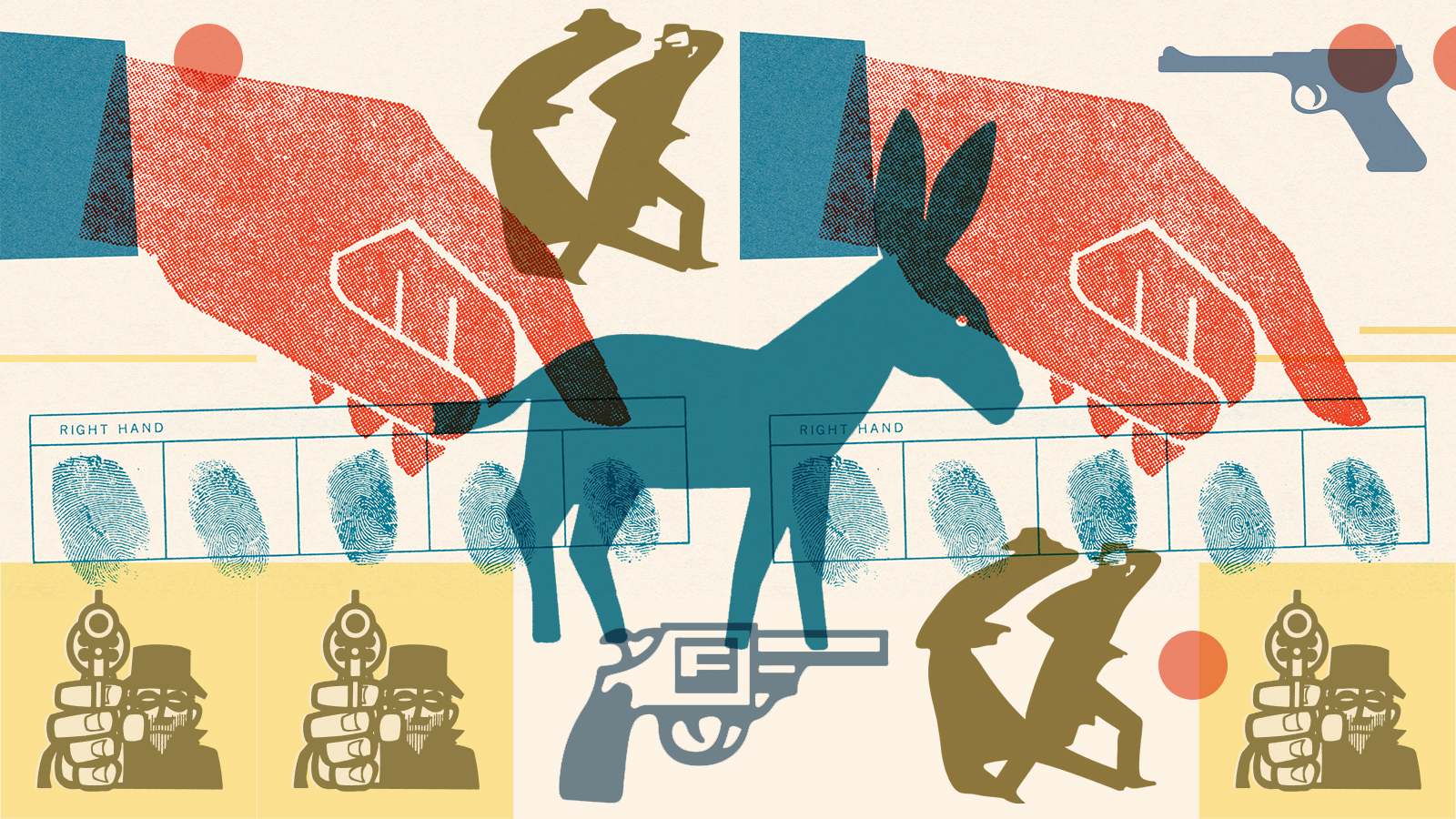Why Democrats lose when they reduce all talk of crime to racism


A free daily email with the biggest news stories of the day – and the best features from TheWeek.com
You are now subscribed
Your newsletter sign-up was successful
Crime wasn't one of the top issues in last week's elections. But it was among the reasons Democratic number-crunchers concluded their party underperformed at the ballot box last year and is primed to do even worse in the midterm elections of 2022.
Violent crime, especially murder, is on the rise. Yet a fashionable and seemingly ascendant part of the Democratic Party is in favor of defunding the police, despite President Biden's best efforts to distance them from the movement (and their idea's telling failure in Minneapolis on Tuesday).
Democrats have been down this road before. Beginning in the late 1960s, the most liberal among them began asserting that the phrase "law and order" was a euphemism for white backlash against civil rights gains. Racial animus certainly drives a nontrivial part of the conversation about crime, both then and now. But people of all backgrounds genuinely do not want to be raped and murdered or see their families become victims.
The Week
Escape your echo chamber. Get the facts behind the news, plus analysis from multiple perspectives.

Sign up for The Week's Free Newsletters
From our morning news briefing to a weekly Good News Newsletter, get the best of The Week delivered directly to your inbox.
From our morning news briefing to a weekly Good News Newsletter, get the best of The Week delivered directly to your inbox.
When liberals see crime as being only about racism and lose sight of public safety, Democrats start to lose elections. Crime became a political liability for Democratic candidates in the 1970s and 1980s, culminating in Michael Dukakis' presidential election loss in 1988. Whatever one's views of the propriety of the Willie Horton ad, Democrats did not win presidential elections again until they changed the perception they were soft on violence. By 1993, the issue had grown potent enough to get a Republican elected mayor of New York City.
Some of the things Democrats did to fix their crime perception problem, like passing the 1994 crime bill (for which Biden drafted the Senate version), only made the problems of racial injustice in the legal system worse. But crime reduction also benefited communities of color, just as spikes in violence often disproportionately endanger them. These neighborhoods need better, fairer policing, not less policing.
One typically Democratic area that was spared last week's red wave was New York City. There Democrats rejected defund the police and closed the opening for a Rudy Giuliani 2.0 candidate. Instead they nominated a black former police officer for mayor. He won handily. While a more substantive policy answer is also required, politically the messaging was right: Good government fights both crime and racism.
Democrats would do well to marginalize any politicians in their midst who see these goals as being in tension with each other.
A free daily email with the biggest news stories of the day – and the best features from TheWeek.com
W. James Antle III is the politics editor of the Washington Examiner, the former editor of The American Conservative, and author of Devouring Freedom: Can Big Government Ever Be Stopped?.
-
 ‘The forces he united still shape the Democratic Party’
‘The forces he united still shape the Democratic Party’Instant Opinion Opinion, comment and editorials of the day
-
 How are Democrats turning DOJ lemons into partisan lemonade?
How are Democrats turning DOJ lemons into partisan lemonade?TODAY’S BIG QUESTION As the Trump administration continues to try — and fail — at indicting its political enemies, Democratic lawmakers have begun seizing the moment for themselves
-
 How are Democrats trying to reform ICE?
How are Democrats trying to reform ICE?Today’s Big Question Democratic leadership has put forth several demands for the agency
-
 Democrats push for ICE accountability
Democrats push for ICE accountabilityFeature U.S. citizens shot and violently detained by immigration agents testify at Capitol Hill hearing
-
 Big-time money squabbles: the conflict over California’s proposed billionaire tax
Big-time money squabbles: the conflict over California’s proposed billionaire taxTalking Points Californians worth more than $1.1 billion would pay a one-time 5% tax
-
 Democrats win House race, flip Texas Senate seat
Democrats win House race, flip Texas Senate seatSpeed Read Christian Menefee won the special election for an open House seat in the Houston area
-
 Did Alex Pretti’s killing open a GOP rift on guns?
Did Alex Pretti’s killing open a GOP rift on guns?Talking Points Second Amendment groups push back on the White House narrative
-
 Is Alex Pretti shooting a turning point for Trump?
Is Alex Pretti shooting a turning point for Trump?Today’s Big Question Death of nurse at the hands of Ice officers could be ‘crucial’ moment for America



